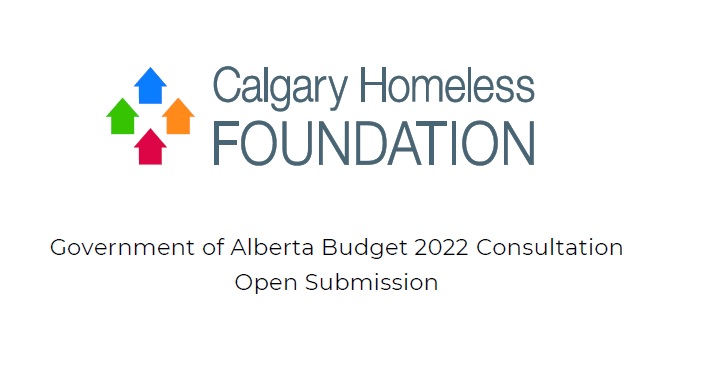A Call for Feedback
To identify gaps in affordability and accessibility of housing in the province, the Government of Alberta is asking Albertans to provide feedback that will assist in the development of a Provincial Affordable Housing Strategy.
Every Albertan is encouraged to respond to the survey. Your input will help inform the development of the Strategy and will make a difference.
The survey provides the opportunity to respond as individuals and as organizations. We encourage everyone to respond, and to ensure you submit an organizational response too.
At the back of the survey are three non-multiple choice questions pertaining to what you/your organization see as the issues related to affordable housing, what’s working well in the affordable housing system and what you could change. CHF has answered these questions through the lens of our role as System Planner for the homeless-serving sector. Our responses include:
Issues specific to homeless serving sector
- Lack of access to affordable housing impedes progress on addressing the specialized needs of Calgary’s most vulnerable who need permanent housing with supports.
- Lack of matching program dollars to capital dollars creates uncertainty in ability to provide long-term, sustained supports that result in housing retention.
- Gaps in rental costs and income support puts increased pressure on not-for-profits and clients.
Working well
- The focus on the need for housing strategies on the municipal, provincial and federal level.
- Recent funding announcements by the provincial and federal governments to address the gaps in affordable housing.
- Government endorsement of plans to end homelessness and address poverty, as well as the implementation of integrative social policies to better serve vulnerable Albertans.
Changes
- Address adequate and appropriate supply of permanent housing with supports for specialized and vulnerable populations served by the homeless sector.
- Increase income assistance to assist those exiting homelessness and to support the 15,600 Calgarian households at risk of homelessness and in extreme core housing need.
- Address client choice through housing allowance rather than unit subsidies.
- Allow non-market housing providers to set realistic rents to fund capital reserves to maintain properties independent of government funding; this allows providers to create value and potential leverage from their stock.
- Develop meaningful incentive programs to encourage private sector development of new rental stock.
- Make land available for housing projects for specialized populations and transfer ownership of government assets to qualified not-for-profit housing providers so that assets may be leveraged and managed more effectively and efficiently to enhance the sector’s ability to meet current and future demand.
We are pleased that the provincial government has taken this opportunity to engage Albertans in this important conversation. Please take 10 minutes to fill out the survey, share this with your social networks and encourage everyone to include their voice in the conversation. The survey can be found HERE. The online survey is open to the public until July 3, 2016.
Together, we will end homelessness in Calgary.
Minister of Housing and Seniors, Lori Sigurdson provides an overview of the Strategy and the engagement process.


